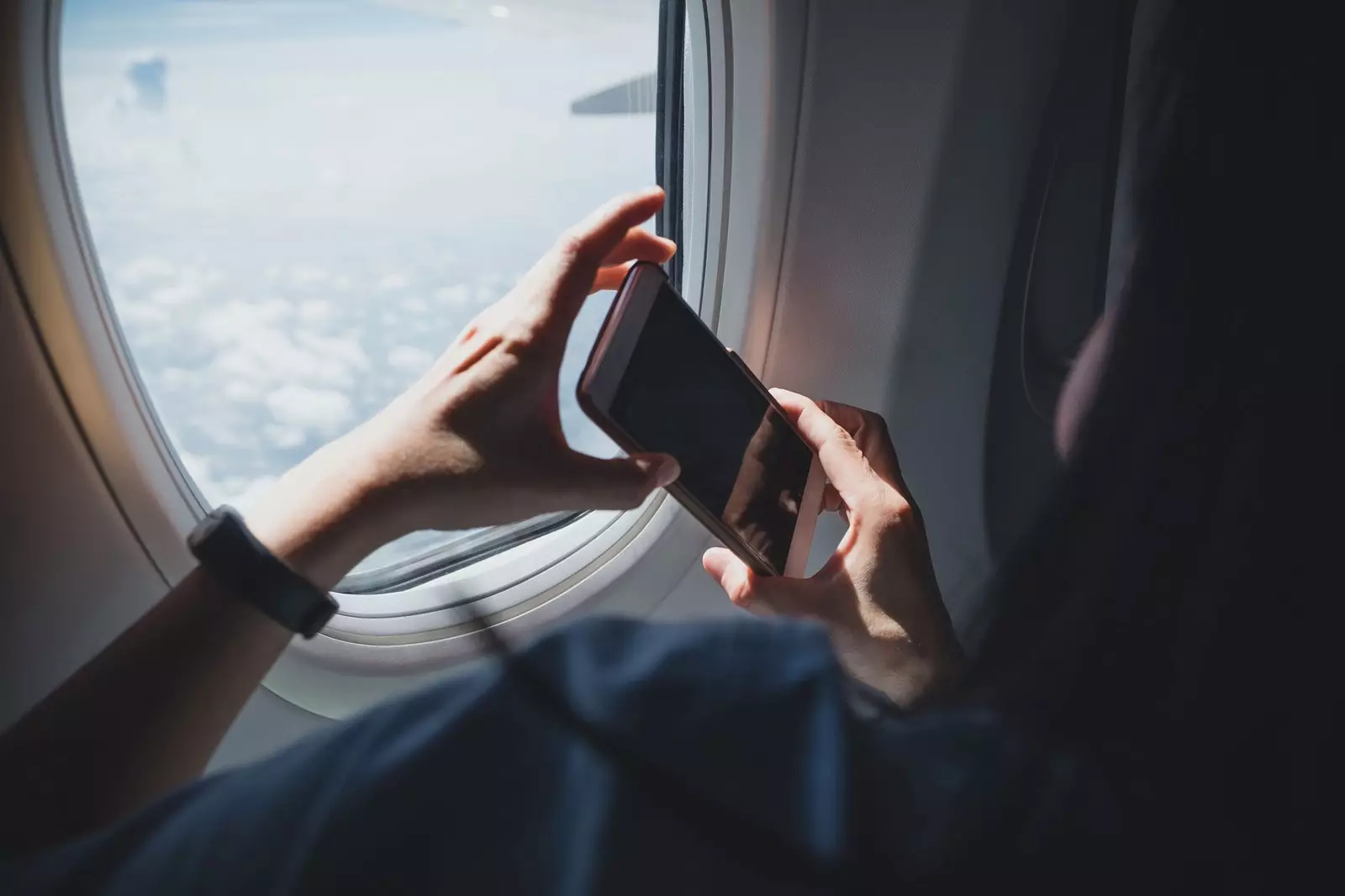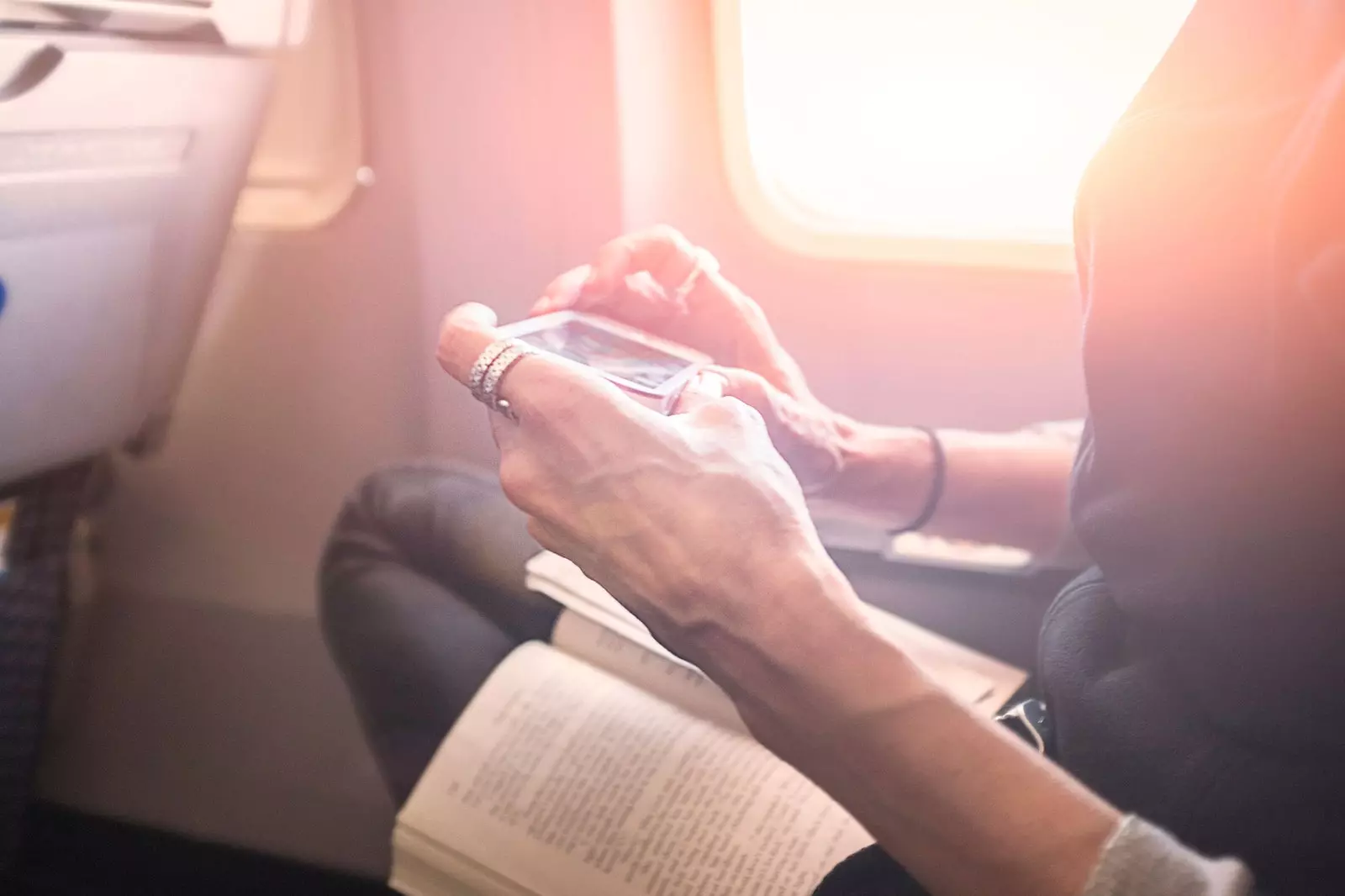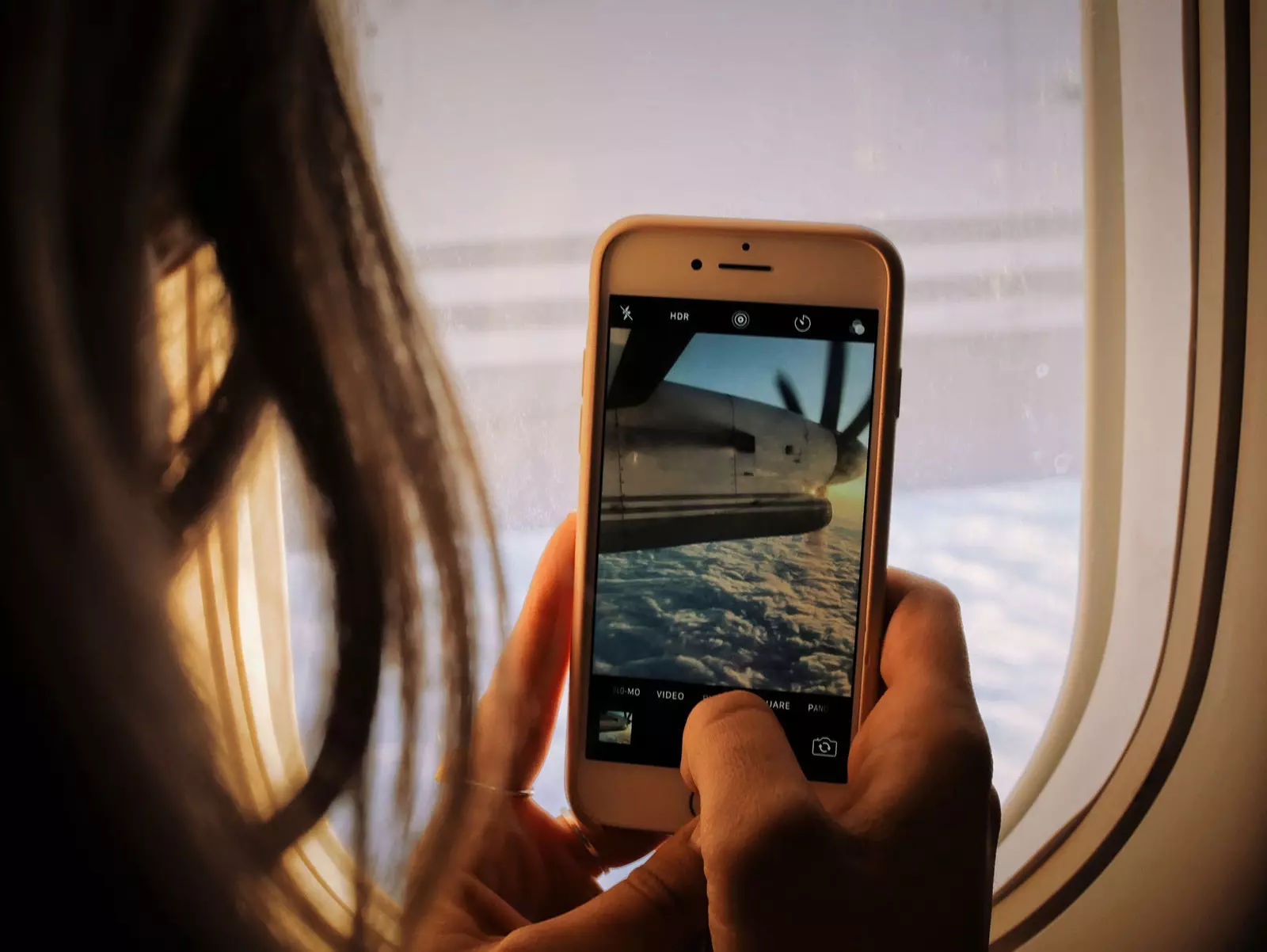
Airplane mode: do I turn off my phone before taking off or not?
It is clearly stated during the plane's safety message before takeoff: mobile phones, tablets, computers and other electronic devices they must be off or in airplane mode from when the crew closes the doors until the plane touches down upon landing.
And yes, we know the theory by heart but, in practice, sometimes, it is difficult for us to obey , especially because we do not fully understand the fact that a simple electronic device can cause some damage to a device as huge as an airplane.
We may not much, but the airlines take the subject of mobile telephony and electronics very seriously for a reason: the interference that a device can produce with the cockpit , the pilot communications between them and with the outside, etc., which are the main reason why you should always put your phone in airplane mode when flying.
But before continuing… a clarification: no plane is going to crash because someone forgets (intentionally or not) to turn off their phone.
Fortunately, airlines, safety regulators and even aircraft manufacturers they already have that on each flight there is a percentage of devices left out of airplane mode . And this, in a way, is the best proof that most devices do not affect flight safety . But like everything in aviation, it is a just in case.
To understand this just in case contextualized in the aviation sector, nothing better than talking about the "swiss cheese theory" to explain aviation safety. Of the cheese? Yes. That's how psychology professor James Reason set a precedent for explaining risk factor's in a plane crash, to what has been called, in colloquial terms, the Swiss cheese model.
What does it consist of? Basically what it comes to show is that an air accident does not occur for a single cause . That is, in the air sector there are many security barriers to avoid a crash, and according to Reason's model, each of them is represented by a slice of cheese whose holes represent the dangers or failures that the system may have. When those holes line up, that's when the accident occurs.

And you, are you one of those who turn it off?
And this is where the question lies: those just-in-cases are one of the reasons why aviation is safer than road travel, to cross the street or even to stay at home (the number of domestic accidents is much higher), and it is precisely that in the air sector works with a huge amount of precaution where it's never too much.
I remember that during a flight, landing in Geneva, the captain of my plane asked all the passengers turn off any electronic device , that is, go from airplane mode to complete shutdown of the device. Why? At that time the Swiss airport was covered in fog , which triggered the procedure low visibility and the pilots wanted to ensure that, in the face of a more delicate maneuver than normal, there would be no other slice of cheese to add to the theme . That said, caution.
FLY IN THE DIGITAL AGE
In any case, it is becoming more and more common to see pilots and crew use a tablet as a flight management tool. The pilots use them to store documents, check routes, etc., instead of carrying so much paper, while the crew has on their tablet everything they need to know about the flight in general and the 2B passenger in particular.
And here's a reality: All of these devices have been extensively tested to ensure that there is no interference with the cockpit. nor with any other element of the aircraft, whether external (communications with air traffic controllers, etc.) or internal.
But we are no longer just talking about mobile devices on or off. At the gates of 2020 it is also added that there are more and more ** planes with Wi-Fi .** And now what?

Oh, the 'just in case'
While some airlines like Norwegian have been offering since 2011 free Wi-Fi on board your aircraft (only in a short radius - their planes Boeing 787 Dreamliner will have wifi in 2020-), others they charge the service at a gold price and they offer a very poor connection, but a connection nonetheless.
And what about interference? The Wi-Fi network has reached aviation after overcoming a rigorous testing process where, among many other barriers, there was also that of generate enough electromagnetic interference to simulate a complete cabin full of various devices, from an electronic book to a mobile or a computer. And all on. And all causing, or not, interference.
Of course, all the planes have passed the test by a huge margin and Today Wi-Fi does not pose any danger to the safety of a flight . However, the vast majority can only be used in the cruise phase of the aircraft, and not during takeoff or landing. The just-in-cases, you know.
